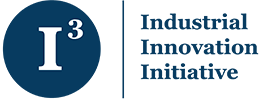The Office of Clean Energy Demonstrations (OCED) at the United States Department of Energy has a crucial role to play in advancing the technology and market solutions needed to significantly decarbonize the industrial sector. The Industrial Innovation Initiative prepared a response to OCED’s recent request for information on the development of demand-side measures to advance the commercial scale-up of clean energy technologies, highlighting just several of the approaches that can help provide a predictable market for clean energy technologies.
Here are the key takeaways:
- Advanced Market Commitments can signal demand and provide some market certainty for innovative products by establishing a certain buyer with clear product specifications such as total volume or carbon intensity. These commitments can be most effective at incentivizing research, development, and deployment of new low-carbon technologies and products that do not yet exist or are at a pre-demonstration level and require demand-side measures to kickstart widespread adoption.
- Contracts for Difference are a relatively new policy that can provide additional support and de-risking for first-of-their-kind projects and innovative products. These types of contracts can support the federal government paying a “green premium” associated with newer, cleaner technologies – allowing producers to compete with incumbents at price parity.
- Harmonizing standards and benchmarks for public purchasing between the United States and international community will be crucial to continue to innovate on par with global efforts and help retain competitiveness for products that are internationally traded.
- Through implementation of demand-side measures the government has an opportunity to drive standards, including transparency and integrity in these nascent markets, legitimizing decarbonization solutions and technologies in the marketplace.
I3 is a diverse coalition made up of key industry, labor, environmental, and business perspectives. For more information and how to get involved, contact David Soll at dsoll@gpisd.net, or sign up for our monthly newsletter to stay up to date with our work.

